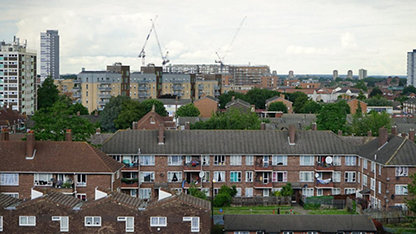In August, the government announced a review of High Speed 2 (HS2) – specifically, an assessment of the costs of the rail project. RICS welcomed this review, having previously supported the development of high-speed rail and its potential to supporting economic growth and recovery by linking major economic centres for trade and investment. HS2 is highly anticipated by Midland and Northern cities which will benefit from the increased connectivity and wider property-based opportunities.
Infrastructure is intrinsically linked to investment, and in the current political and economic climate there is already a lot of uncertainty for business and industry around potentials for growth and attracting investment. An important factor which companies consider when they are making investment decisions is the transport links and interconnectivity.
We continue to urge government to look at infrastructure and construction and the need for other investment in regional infrastructure that creates better connectivity for people and goods, particularly rail to help support HS2 if the project goes ahead. There is also the need for greater connectivity between cities, and growth areas including the Cambridge, Milton Keynes and Oxford Corridor which was a focus of a 2016 National Infrastructure Commission report.
High-speed rail has the potential benefit to move people and cars off our road systems decreasing the carbon emissions of the nation, but this must be measured by the impact environmentally of HS2 and the acquisition of land especially undeveloped green space through compulsory purchase orders (CPOs). Innovations and evolving technologies have meant that transport infrastructure is becoming increasingly intelligent and connected.
A new high-speed rail network will add to the current capacity that the current lines and commuter trains provide, it should also form part of a holistic planning approach to stimulate and support the economy, housing and other transport infrastructure. It is also vital to health, with potential to ease congestion and air pollution. However, to ensure the benefits, especially from a green perspective and to decrease car congestion and emissions, the new and existing networks must be suitable alternatives to car travel across the whole journey from leaving home to arriving at an intended destination. If the focus is only on one element and either connections or parking are lacking, then people will not change their commuting behaviour.
As part of RICS' approach to deliver respected global standards that positively change our environment, ICMS 2nd Edition provides standards to assess optimum cost, and drive more whole life cycle sustainable and resilient infrastructure. This global standard has been through member consultation and will be published in autumn 2019.
As a professional body that tasks its members to provide a foundation for confident markets, RICS has been vocal in the need for construction industry cost standards to ensure all large government and private projects are comparable and consistently benchmarked. We would urge government to adopt ICMS, already adopted by Highways England as the basis for reporting the cost of all large road projects, to ensure consistency across markets, regions and sectors.
At the conclusion of this independent review, RICS would urge for cross party consensus and support for the decision to ensure that decisions to grow and connect the UK as well as be environmentally and fiscally responsible.
Find out how you can help us engage with government
About the author

Tamara Hooper
Policy Manager, RICS
Tamara is our Policy Manager. She is based in London and works within the UK External Affairs team.

















